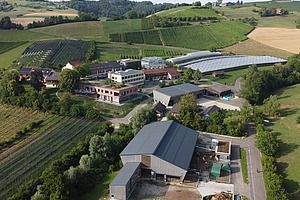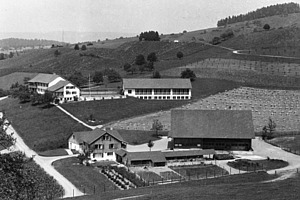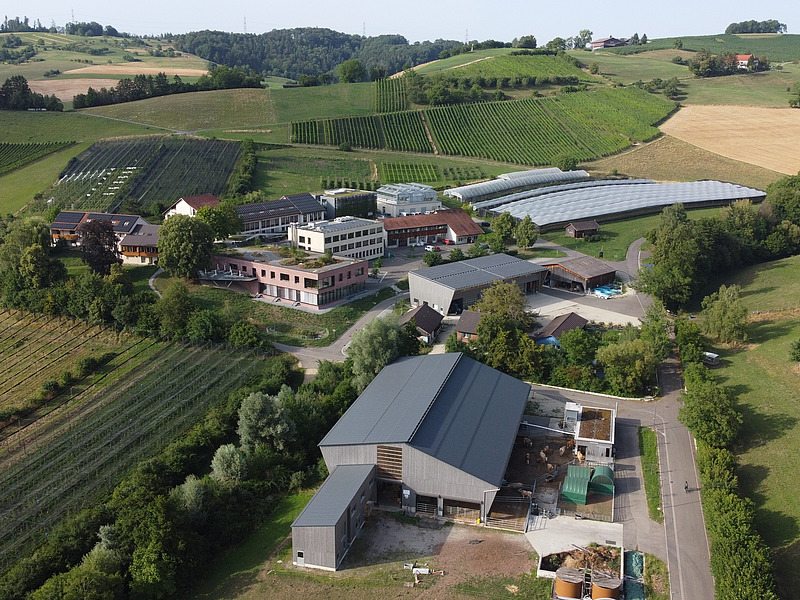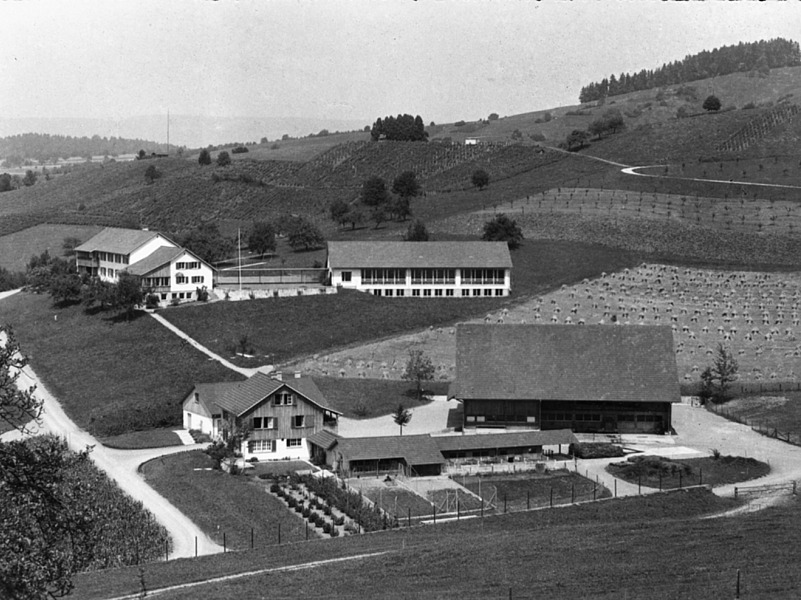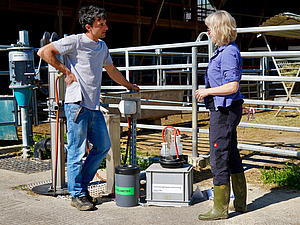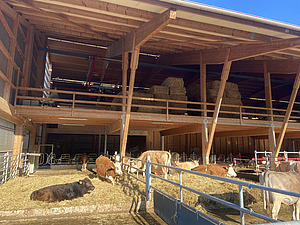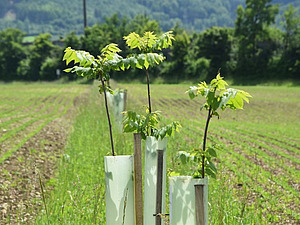History
The FiBL farm is a diverse agricultural operation located on the FiBL premises at the edge of Frick, combining production and research. Originally conceived as an estate farm for the former agricultural school, it was converted to Bio Suisse organic standards in 1996 by the tenant couple Allemann and taken over by FiBL in 1997.
Today, the farm comprises 31 hectares of agricultural land, which is used in close cooperation with FiBL research. Since January 1, 2024, the farm has been managed by Pascal Nägele.
Research collaboration
FiBL works closely with farmer Pascal Nägele (left) on various research projects. He has been running the farm since January 2024. (Photo: FiBL, Thomas Alföldi)
The FiBL farm is located directly next to the institute and is used, among other things, for the implementation of various research projects. There is close collaboration with Pascal Nägele, who leases the farm from FiBL. The farmer receives service contracts from FiBL, compensating for activities such as farm tours, work for research projects, or related restrictions.
This cooperation represents a dedicated branch of the farm, providing a stable income and averaging approximately one working day per week over the course of a year.
Farm branches
A herd of horned dairy cows of robust dual-purpose breeds such as Swiss Fleckvieh and Original Braunvieh (OB) lives on the FiBL farm. (Photo: FiBL, Adrian Krebs)
The FiBL farm encompasses a wide range of agricultural activities. The main branches are dairy farming, arable farming, and research collaboration.
Dairy Farming
The main focus of the farm is dairy production: the herd includes 25 dairy cows and heifers of various dual-purpose breeds adapted to organic farming, including Swiss Fleckvieh and Original Braunvieh (OB). Since the construction of the new free-stall barn in 2020, milking is done using a robotic milking system. Overall, a resource-efficient and circular approach is practiced, with animal welfare as a central priority.
Arable Farming
The main crops include feed soybeans as well as bread grains like winter wheat and spelt. All crops are grown in a carefully designed crop rotation system designed to promote and maintain long-term soil fertility. In addition, research trials are conducted with various crops such as winter rapeseed, field beans, oats, and sweetcorn.
Special features of the FiBL farm
Due to the close cooperation with the research institute, several unique and innovative approaches have been implemented on the farm — for example, the agroforestry system planted in spring 2024 or the on-site slaughtering of dairy cows.
Further information
Links
fibl.org: Media release "Ein motivierter Jungbauer übernimmt den FiBL Hof als Pächter" (in German)
fibl.org: Interview with the new tenant (in German)
bioaktuell.ch: Article "Innovation aus der Praxis: Mobiler Trutenstall" (in German)




